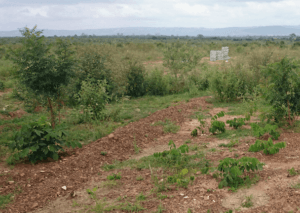Calls made for expedited work on L.I. for Land Act 2020
 Land-based investors and stakeholders in the sector have called for the early completion of work on the draft Legislative Instrument (L.I.) to provide the legal framework for the implementation of the Land Act, 2020 (ACT 1036).
Land-based investors and stakeholders in the sector have called for the early completion of work on the draft Legislative Instrument (L.I.) to provide the legal framework for the implementation of the Land Act, 2020 (ACT 1036).
The Stakeholders, comprising large-scale land investors, traditional authorities, and civil society organisations, said the passage of the L.I. should be done “as soon as possible” to define the processes for implementing the Land Act.
They made the call in separate interviews at the opening of a two-day stakeholder consultative workshop in Accra to solicit for inputs from actors in large scale land-based investments towards the draft L.I. for the Land Act.
The meeting was organised by the Ghana Land Sector Multi-Stakeholder Platform (LSMSP) in collaboration with SNV Netherlands Development Organisation, and the Ministry of Lands and Natural Resources.
The workshop forms part of the Transformative Land Investment (TLI) project being implemented by SNV, which aims to promote inclusive and sustainable land governance in Ghana.
Parliament passed the Land Bill, 2019-a formal legal regime to guide and regulate land acquisition and usage in the country on Thursday July 23, 2020.
It aims to consolidate reforms made so far in Ghana’s land sector following implementation of the National Land Policy (NLP) in 1999.
Nana Ama Yirrah, a member of the Coordinating Committee of the Land Sector Multi-Stakeholder Platform, told journalists that the L.I. would support the effective implementation and enforcement of the provisions of the Land Act.
She said under the current regime, traditional authorities were the custodians of about 80 per cent of Ghana’s lands and were mainly involved in land negotiations of varied sizes and values.
She said negotiations for large-scale land investments required some technical expertise, adding that sometimes the negotiated terms did not reflect the actual value of the lands.
Nana Yirrah said there was also disconnect between the state land administration and the customary land administration such that the state “has no business” in customary land negotiations.
“Meanwhile it is at the state level that we have the technical capacity to value the land, know what value can be ascribed to what size and so on. By the time the State comes in at the point of registration, the land deal had been settled,” she said.
Nana Yirrah said the Land Act seeks to cure the problem by ensuring that the State was involved in the sale of lands beyond 20 hectares in residential areas and 50 hectares in non-residential areas.
Dr Divine Odame Appiah, Multi-Country Project Manager for SNV’s TLI Project, said large-scale land acquisitions, in some cases, were detrimental to smallholder farmers, adding that the L.I. would help prevent the marginalisation of such groups.
“When the Legislation is clear on the extent of engagement, how to acquire the land, the tenure arrangement would be spelt out and those that were considered marginalised and disadvantaged in the process of large-scale land acquisition would be factored into the process,” he said.
Naana Dugbakuwor Dugba II, Paramount Queen, Ningo Traditional Area, said women in farming and fishing communities needed more education on land issues to help promote land accessibility for women.
“We want the L.I to be completed and passed as soon as possible so that it will help women and the entire society,” she said.
Source: GNA
